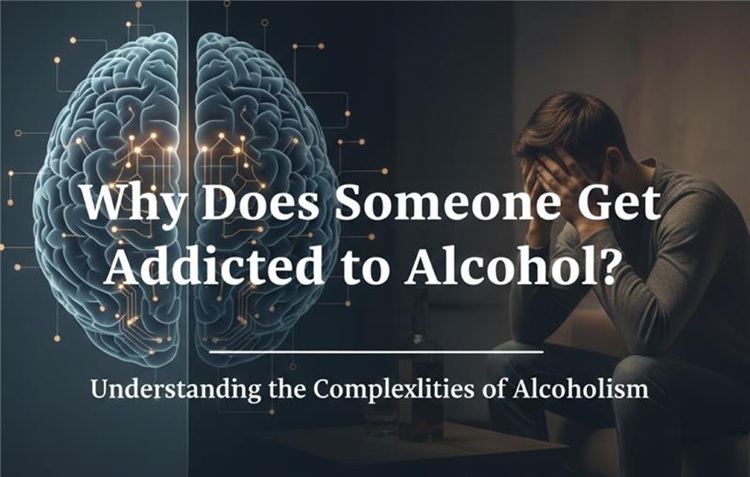Personality disorders are complex mental illnesses, and involve a persistent and unbending manner of thinking, feeling, and acting that is severely and far expected of the cultural norms. Such patterns may cause significant pain, difficulties in relationships, at work, as well as social life. When you have been wondering whether some attempts to overcome personal problems are fraught with a personality disorder, getting to know what are usually the characteristics of this disease are and what professional help is the essential initial step.
What is a Personality Disorder?
Contrary to temporary mental health issues, personality disorders are firmly established patterns of viewing oneself and responding to the world. Such poor habits usually set the person unable to manage the normal stresses, comprehend feelings, control urges, and support steady relationships. Although the manifestation of symptoms differs considerably in the light of category, all personality disorders encompass a similar failure of self-identity and interpersonal functioning.
Common Signs and Symptoms
The symptoms of personality disorder are not always easy to detect because the subject in question may not necessarily be aware of the problematic nature of his/her behaviors. Usual indicators may, however, consist of:
- Self-functioning troubles: Trouble with self-identity, variable self-esteem, or self-purposes.
- Interpersonal problems: inability to establish and sustain close bonding, inability to appreciate the viewpoint of others or to solve problems with them.
- Abnormal or deficient behavior: Strange, irrational behavior.
- Emotional dysregulation: intense and short-lived mood swings, anger outbursts or a lack of containment of emotional outbursts.
- Suspicion and distrust: Continuous distrust or lack of trust in other people, even when there is no justifiable cause.
- Impulsivity and risk-taking: taking part in things that can risk or even harm without reflecting upon what can happen.
- Chronic feelings of emptiness or loneliness: A persistent sense of void or isolation.
- Fear of abandonment: The panic-stricken fear of being left behind or discarded, causing neurotic attempts to prevent being split apart.
- The absence of empathy: does not know how to read or sympathize with the feelings of other people.
Perfectionism or need to control: excessive demand on order and precision that disrupts daily activities and relations (usually linked to Obsessive-Compulsive Personality Disorder, not Occupational Compulsive Disorder).
Understanding the Types: The Three Clusters
The personality disorders are normally classified under three areas with commonalities:
Cluster A (Odd or Eccentric): Individuals with such disorders tend to be strange and weird. This cluster can be found:
- Paranoid Personality Disorder: Symptomatic of general distrust and being suspicious of other people.
- Schizoid Personality Disorder: Characterized by a lack of engagement in social connections as well as limited emotional expressions.
- Schizotypal Personality Disorder: This is associated with eccentric behavior, odd ways of thinking and discomfort with intimacy.
Cluster B (Dramatic, Emotional, or Erratic): Conditions in this group are characterized by the presence of frenzied, irregular emotions and impulsive or self-seeking tendencies. This group consists of:
- Antisocial Personality Disorder: A lack of respect for the rights of others, which can be associated with trickery, manipulation, and not feeling guilty.
- Borderline Personality Disorder: Characterized by unstable relationships, self-image, feelings and impulsiveness.
- Histrionic Personality Diagnosis: A diagnosis of this disorder is described by over-emotional and attention-seeking behavior.
- Narcissistic Personality Disorder: This disorder is characterized by feelings of great importance as well as the need to feel others admire him/her and the inability to empathize.
Cluster C (Anxious or Fearful): The individuals having such disorders tend to have anxiety and a lot of fear. In this clustering, there are:
- Avoidant Personality Disorder: There is social inhibition, a sense of inadequacy and extreme sensitivity to negative appraisal.
- Dependent Personality Disorder: This is a condition that involves excessive dependency on being cared by people and therefore portrays a submissive and clingy character.
- Obsessive-Compulsive Personality Disorder (OCPD): Is characterized by an irrational concern about order, perfectionism and control.
Diagnosis and Treatment
Self-diagnosis is not possible in a personality disorder. In case you notice a few of these signs in yourself or your loved one, it is essential to have a proper diagnosis done by a licensed mental health professional. The diagnosis is characterized by a thorough analysis of long-term models of thinking, feelings and behavior, and the effects that such models have on everyday life.
Although personality disorders may be difficult, there are effective treatment interventions that can assist victims to cope with the symptoms and live better lives. Their main treatment of choice is psychotherapy (talk therapy) that can create an awareness about their thinking processes, build on healthier ways to deal with life issues, and to have better relationships.
Certain treatment interventions that proved to be effective are:
Dialectical behavior therapy (DBT): Most effective when treating Borderline Personality Disorder, is especially effective in emotional control, distress tolerance, and interpersonal productivity.
Cognitive Behavioral Therapy (CBT): This is used to help in locating and transforming negative thought and behavioral patterns.
Schema-Focused Therapy: Treats well-established bad behaviours and ways of thinking.
Mentalization-Based Therapy (MBT): It aims at developing the capacity to comprehend psychiatric states of mind in people and others.
Certainly, in cases, medication can be prescribed to treat any occurrence of symptoms of any co-occurring conditions, such as depression, anxiety, and mood swings, though no particular medication is used to cure personality disorders.
Finding the Right Support
If you believe that you or someone you care about might have a personality disorder, remember that help is available. Early intervention and consistent participation in treatment can make a big difference. For comprehensive and compassionate care, consider reaching out to Palm Coast Treatment Solutions.

They are staffed by a skilled team of professionals able to provide the necessary evaluation and customized treatment plan to help overcome personality disorder complications and achieve recovery and health. Contact us now at (386) 284-4151 to speak with one of our licensed clinicians.






















